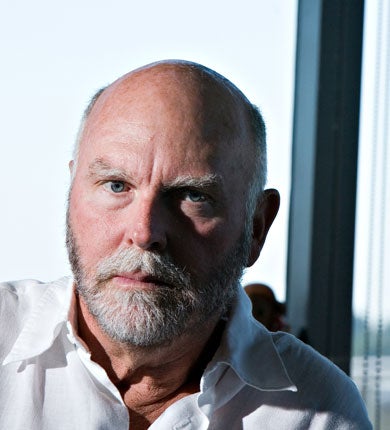Public is relaxed about artificial life, says study

Your support helps us to tell the story
From reproductive rights to climate change to Big Tech, The Independent is on the ground when the story is developing. Whether it's investigating the financials of Elon Musk's pro-Trump PAC or producing our latest documentary, 'The A Word', which shines a light on the American women fighting for reproductive rights, we know how important it is to parse out the facts from the messaging.
At such a critical moment in US history, we need reporters on the ground. Your donation allows us to keep sending journalists to speak to both sides of the story.
The Independent is trusted by Americans across the entire political spectrum. And unlike many other quality news outlets, we choose not to lock Americans out of our reporting and analysis with paywalls. We believe quality journalism should be available to everyone, paid for by those who can afford it.
Your support makes all the difference.The general public is surprisingly accepting of the idea of creating synthetic life forms in the laboratory – providing the artificial microbes are designed for a good purpose and the motivations of the scientists involved are clearly defined, a study has found.
A Government-funded project to engage the public in a debate over synthetic biology was eclipsed by the announcement on Thursday night that scientists in the United States have created the world's first synthetic life form, a new type of living cell that is entirely programmed by a laboratory-made chromosome.
Craig Venter, the American genome entrepreneur, led the $40m (£28m) study that created the synthetic microbe from a living cell and an artificially-constructed chromosome made from a DNA code stored on a computer.
The new study into public attitudes attempts to create a dialogue between the scientists who hope to carry out similar "synbio" research in the UK and the taxpayers who fund the work. It is being jointly run by the Biotechnology and Biological Sciences Research Council and the Engineering and Physical Sciences Research Council.
The £250,000 project began last September and has involved a series of focus groups with 160 carefully-selected members of the public from different parts of the country and representing different social and ethnic groups. Its aim is to establish the sort of public dialogue that was lacking over the debacle about genetically modified (GM) crops, which were overwhelmingly rejected by the public.
"We want a very early debate before the first products of synthetic biology come to the market. This technology is going to be very important and the technology must be explained in a way that the public can understand," said Brian Johnson, an independent consultant who chairs the public dialogue panel.
"Surprisingly, we've not seen wholesale opposition to the creation of artificial life. People are fascinated and genuinely hopeful for what the science can deliver, but they are also genuinely concerned over who governs science and the motivation for doing this type of research," Dr Johnson said.
"They are also deeply concerned about regulation. They believe it needs to be developed and it has to have an international dimension. They would for instance like to ask Craig Venter about his motivation for doing this kind of research and the regulations relating to it," he added.
Join our commenting forum
Join thought-provoking conversations, follow other Independent readers and see their replies
Comments